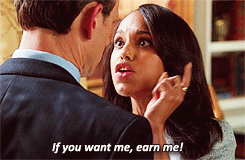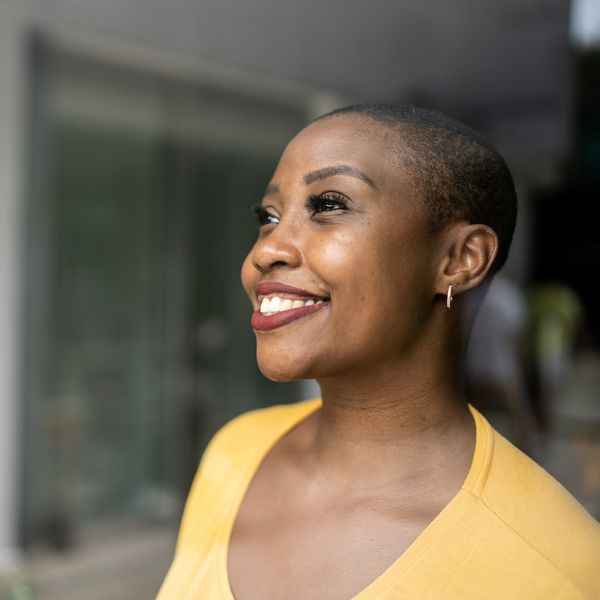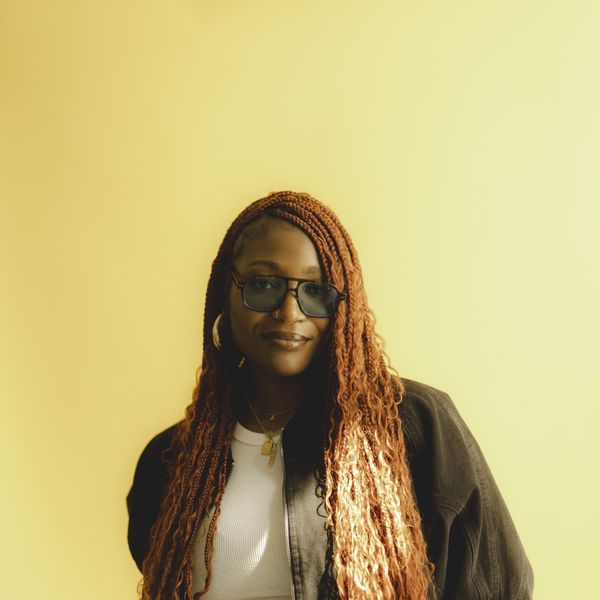How much are you really worth?
Do you know how much you should get paid based off of our skill set, previous work experience, and education? What about how much you should get paid based off of where you are located? If you didn't know, your location matters--it actually matters a lot.
Often times, we as Millennials do not understand or truly know our worth. We hunt for jobs, and eagerly accept an offer, and take any wage that is given to us. Since we fail at knowing what we are financially worth, we let companies do it for us. I don't know about you, but no one knows my value and worth better than I do!
Even more, sometimes we make the mistake and say that we are "open" and our salary requirements are negotiable before the negotiation period even starts! We communicate to the hiring manager that we are "open" to any salary because of 3 reasons:
1.) We are scared that if we go above and beyond and name a really high wage, we will turn the interviewer off, and they will automatically kick us out of the picture.
2.) We are scared that if we give a number that is low and get hired, we will ruin our chances of getting the highest salary that is available.
3.) We don't have a clue on what we should make, so we just roll with the punches.
Countless times I have seen people make the mistake of telling the recruiter that they would rather wait until later in the interview process to discuss salary. Doing so can annoy the recruiter, because sometimes getting an idea of the applicant's salary expectations upfront decreases the likelihood of wasting your time and the recruiter's time. For instance, if you are applying to a job as an Accountant and you already know that $65,000 a year is your minimum, you should communicate that. You never know, the budgeted salary for that position may be capped off at $45,000, and if the recruiter knows that your definite minimum is $65,000, he or she can let you know, and you will be able to move on.
If you are interviewing for a job, you should have your salary requirements already decided. Even more, before you even apply to the job, you should try to look for information online to see what someone with that position makes on average. If you don't take the time out to do this, you will be lost and will hastily throw out a number when the interviewer asks, "So what are your salary requirements?"
Or you may be like my friend and give out inconsistent salary requirements when asked by different interviewers in separate interviews. My friend was so eager to get a new job, but didn't do his salary research, so he was caught off guard when asked how much he was looking to get paid. #fail
[Related: Pass The Opportunity Please: Does It Always Pay To Negotiate?"
width="407" height="271" />
Money is something that we all love, but feel awkward about when discussing it in an interview. Nonetheless, it is important for you to get over this fear and understand what your market value is before you interview for another job. You know what type of education that you have, what your work experience is, and what kind of skills that you possess--now it's time to find out how much people in your industry make. There are many resources online that can easily give you this information with the click of a button.
[Tweet "Money is something that we all love, but feel awkward about when discussing it in an interview."]
On websites like glassdoor.com, payscale.com, indeed.com/salary, and salary.com, you can find a variety of salary ranges for various positions. If you are applying for a federal government job, you can find salary data on opm.gov.
As I mentioned earlier, location is very important when determining your salary requirements because of the cost of living in different states. For example, if you make $45,000 a year as a teacher in Texas you may be comfortable, but if you make the same as a teacher in New York or California, then you may struggle to pay your bills and put food on the table (especially if you're supporting a family off of your salary).
So when you are asked what are your salary requirements are, what should you do? Here are 4 things that you should consider doing when talking money with a future employer.
1). Do your research.
Before the interview, look on sites like Glassdoor or Payscale and see how much someone in that position within that company typically makes. Even if you cannot find the specific average salary for your desired position at that company, just knowing how much someone in that position makes in your geographic area is important. Both sites will allow you search based on the company, job position, and location--giving you a number of options to help ensure that you are asking for the right compensation.
2). Figure out what's all in it for you
Most companies offer some sort of compensation package with medical and dental insurance, vacation and sick time, and a 401K contribution. In many new start-up companies, especially in the tech field, perks such as tuition reimbursement, free or catered lunches, gym membership reimbursement, a pet-friendly environment, public transportation discounts, and more are given. Even in the industry that I work in, free housing and discounted gym membership is a given, depending on your site's location and the position that you have.
When you are figuring out what salary you should demand, look and see what is included in the total compensation package. For me, communicating that I would take a smaller salary than I desired was fine because I knew that the position that I was applying for would include free rent (all bills included!).
[Tweet "Look at the total package when determining salary expectations."]
3). Give a broad salary range
I always recommend giving the recruiter a salary range instead of a specific number. However, on the same note, make sure your salary range is something that you are comfortable with. The lowest number in your salary range should be an amount that you will not only be comfortable with, but would still allow you to pay bills and save. The highest number should be what you would like to make and is the highest amount that you think you should be paid. However, when you are determining what your salary range will be, make sure that your number is realistic. If you are applying to be an Office Manager and this position in your area typically makes $35,000-$45,000, don't go in and demand a salary of $65,000-$75,000, especially if you don't even make close to that right now.
4). Be ready to negotiate
When you finally get the job offer and the hiring manager tells you what they can offer, negotiate if the amount isn't pleasing. Do not be scared to open your mouth and ask for what you want, but of course, do so in a polite, strategic, and professional manner. The company has offered you the job, so obviously they want you. If you want to negotiate your salary, you can start off by saying something like, "Thank you for your offer, I am really excited to join the team. My only reservation is that the compensation is lower than what I expected and for my income needs. I was really expecting a salary of ____. Is this possible?" If you negotiate and it works, congrats! More money in the bank for you! If you try to negotiate and it doesn't work out, then at least you can say that you asked and didn't just take anything without putting up a fight first.
width="411" height="411" />
In all occasions, ask and it shall be given. A closed mouth doesn't get fed. Speak up or shut up--and all of those other cliche sayings.
The next time when you are job hunting, make sure you know your worth and your market value. Determine this first before a company determines this for you.
[Tweet "Know your worth. Know your market value."]
If you have any tips on answering the salary question, or have an interesting testimony, let us know below!
Get more career tips and tricks by visiting our xo Business section!


















